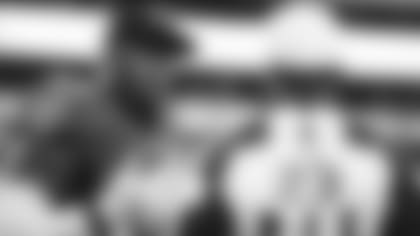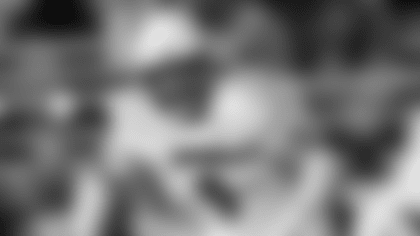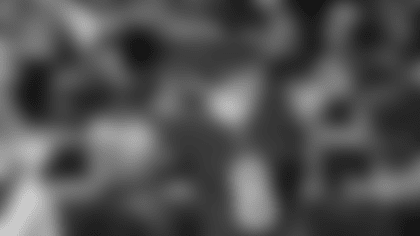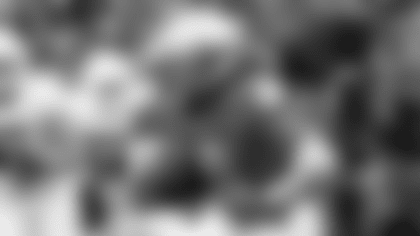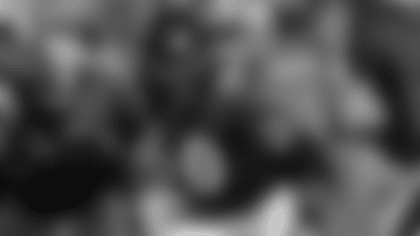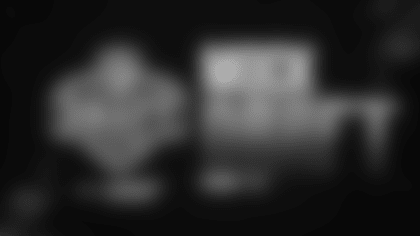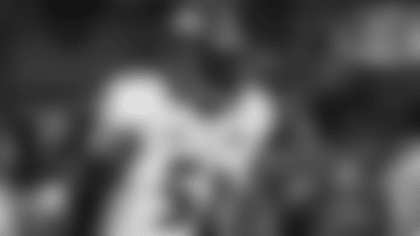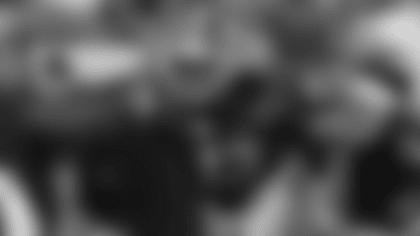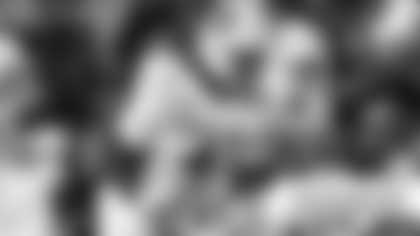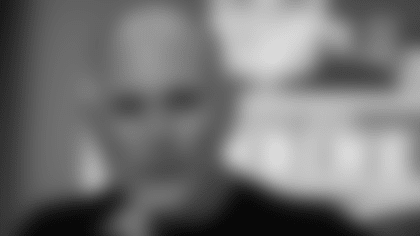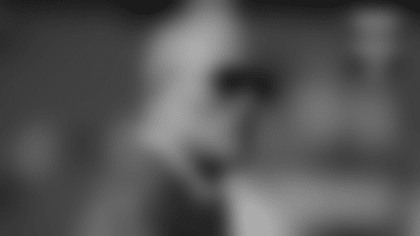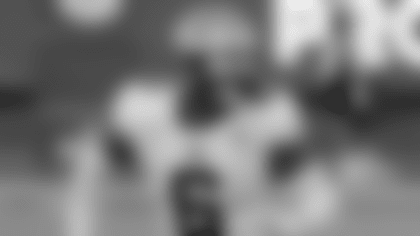The Eagles are calling foul play on outside linebacker Terrell Suggs' hit on quarterback Sam Bradford during the opening drive of Saturday's game.
Suggs, however, doesn't think it should have been penalized at all.
On the Eagles' first drive of the game, Bradford took the snap and faked as if he could run the ball. He instead read that Suggs was coming at him, and handed it off. It's part of Philadelphia's read-option offense. The quarterback is used as a decoy.
Immediately after Bradford handed the ball off, Suggs hit the quarterback low, around his knees. Suggs was flagged for unnecessary roughness (roughing the passer).
Considering Bradford's injury history and that he was making his Eagles debut, there were some in the Philadelphia locker room who questioned Suggs' intentions.
Bradford told Eagles reporters that he thinks Suggs intentionally went at his knees and Eagles left tackle Jason Peters said he thinks the hit was premeditated, considering the two teams practiced against each other for three days before the game.
"He was trying to take a cheap shot at the quarterback," Peters told Philadelphia reporters. "I'm pretty sure he planned it."
Suggs wasn't asked about his intentions on the hit. He treated it just like any other read-option play. How could he be roughing the passer when the passer is pretending to be a runner?
"When you run the read-option, you've got to know the rules," Suggs said. "If you want to run the read-option with your starting quarterback that's had two knee surgeries, that's on you. That's not my responsibility to update you on the rules. I could have hit him harder than that. I didn't, I eased up.
"[It's] just the read-option. I've got the quarterback. It ain't my job to be reading. He's reading me."
Suggs doesn't think it should have been a penalty at all, and he and Head Coach John Harbaugh made that clear during the game.
"It's preseason for [the referees] too," Suggs said. "Jerome [Boger], the referee, I asked him if he knew the rules in preseason. He was like, 'Yeah, I know.' I was like, 'Alright, just making sure.' He said he's going to look at it."
The Ravens had more penalty issues than just the first one called on Suggs. Baltimore was flagged a whopping 17 times for 139 yards. Meanwhile, the Eagles drew just seven flags for 65 yards.
"I don't think it's nothing to make a big deal of," Suggs said. "You've just got to look at them and evaluate. They're football plays, man."
While Harbaugh didn't agree with all of the calls, he still wasn't happy with the frequency of flags. He named it as one of main issues the team will need to work on after the blowout loss.
"I don't know [the reason for all the penalties]," Harbaugh said.
Part of the reason for the influx of penalties was the Ravens' banged-up offensive line. At times, Baltimore had three offensive linemen playing in positions they hadn't practiced. That meant a lot of grabbing jerseys that resulted in five offensive holding penalties and one tripping on the line.
The Eagles' fast-paced tempo and unique offense could have also contributed to more penalties.
Suggs had three penalties called against him on the Eagles' first drive, including the roughing the passer, defensive holding and offsides. Only the first was accepted. Safety Kendrick Lewis was flagged twice on the Eagles' third drive, once for unnecessary roughness when he knocked over a Philadelphia receiver that wasn't in the play, and for illegal contact.
The Ravens secondary, cornerback Cassius Vaughn and rookie Tray Walker, was penalized twice in coverage. Linebacker Zach Orr was also caught grabbing in pursuit. Two linebackers, Za'Darius Smith and Zach Thompson, were flagged for illegal use of the hands.
Baltimore had two penalties during two-point attempts, which both wiped successful attempts off the board and backed up kicker Justin Tucker on extra point attempts. Tucker made one 48-yard extra point.
Harbaugh and safety Will Hill said the Ravens will have to look at the film and evaluate each penalty separately. It's not something to lump into one overall problem.
"Some of the calls, we don't feel as though it should have been a penalty, but the game is changing each year," Hill said. "So we've got to go back and see what is considered a pass interference or whatever call was called out there, we've got to get new technique or not and just move forward."


